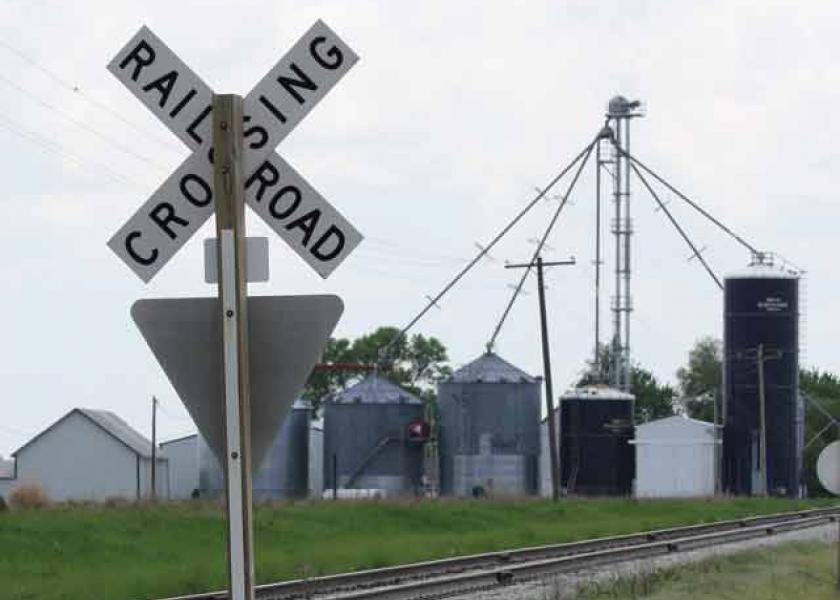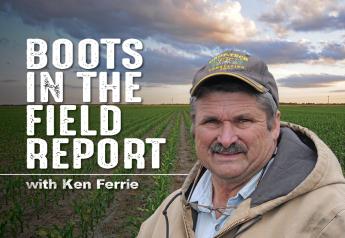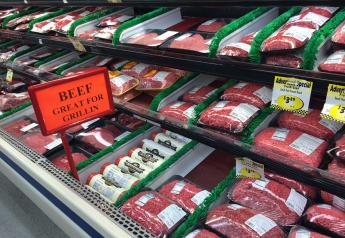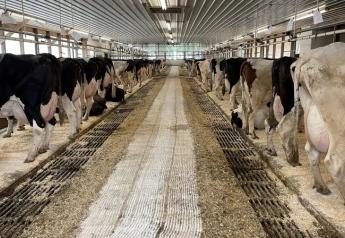Could Rail Workers Now Strike Starting Monday As Concerns Of a Feed Shortage Continue In the West?

Continued issues shipping feed and other products via rail are growing more severe. Feed users already report being just days away from running out of feed, and as labor negotiations continue between the railroads and unions, a weekend deadline looms to keep the collective bargaining process on track.
President Joe Biden has until Sunday, July 17, to appoint a Presidential Emergency Board (PEB) to investigate and make recommendations for settlement. If the Sunday deadline isn't met, rail labor has already voted to go on strike. However, the Association of American Railroads told AgWeb on Wednesday that it's widely expected there will be an appointment of a PEB by the deadline.
As first reported last month, rail bottlenecks in the U.S. are not improving for those in need of grain in the West. Feed users in California and the Southwest are having issues sourcing grain, with some reporting they are paying $3 over the CBOT price to secure grain by truck. Not only are feed users on the brink of running out of grain, but there are also concerns the rail issues could grow worse during harvest this fall.
Read More: Livestock Producers Report Being Just Days Away From Running Out of Feed Due to Shipping Rail Issues
The National Grain and Feed Association (NGFA) says its members have been seeing issues since late winter and early spring, which then caused the Surface Transportation Board (STB) to hold a hearing in August. While the industry thought the issues would improve by summer, labor issues are not getting better.
“What I'm hearing from our members is there are fewer equipment issues and that the equipment and engines seem to not be breaking down, but the train times - the amount of time it's taking to get the trains and the reliability of receiving them - are still quite a problem in quite a few areas of the country,” says Mike Seyfert, president and CEO of NGFA.
Looming Rail Strike?
The labor negotiations, which cover 115,000 workers according to Reuters, has been in what they call a 30-day cooling off period. The White House has until Sunday, July 17, to appoint a PEB.
Sources in the grain industry say if President Biden doesn’t appoint the PEB, then railroad labor is authorized to strike. The decision to go on strike is already in motion, as rail labor already voted to strike on Monday in the event Biden does not appoint a PEB.
A White House official is quoted as saying the administration “is going through the standard process that has been used in the past when considering a PEB.”
A strike isn't inevitable, as the AAR says it is widely expected that there will be an appointment of a PEB. The AAR says it's important to note there there are a number of steps left before a work stoppage would even be possible under the law.
Read More: Labor Contract Negotiations Continue Past Deadline at Some of America's Most Important Ports
According to the National Railway Labor Conference (NRLC), which is the group that handles the carriers' national bargaining, "the railroads expect a PEB will be appointed in this dispute before the end of the 30-day cooling off period, as has been the case in prior unresolved national rail negotiations."
If the president does appoint a PEB before the Sunday deadline like expected, the board has 30 days to make settlement recommendations, and strikes are prohibited during that time. If rail carriers or rail labor reject the PEB recommendations, Congress can also intervene.
The move to appoint a PEB is not unprecedented. President Barack Obama appointed a PEB in 2011 to help prevent a rail labor strike.
The Issue in Storing and Transporting Grain
Eric Wilkey, president of Arizona Grain, Inc., saw the issues starting firsthand this spring. Rail cars that were scheduled to arrive in May, as area wheat harvest was gearing up, didn’t actually start arriving until early July. As a result, wheat supplies piled up at their facilities.
“Now, they’ve [railroads] signaled to us in meetings publicly and otherwise, that they are having some success in hiring again and getting crews successfully through training,” he says. “For us, there's no time as we're in harvest right now. And I don't have time to wait another three months for crews to be trained.”
Just prior to the STB hearing in April, Landus Coop, representing 7,000 farmer owners in Iowa, submitted written testimony saying rail issues meant they were only able to load half the rate of shipments necessary, and the backlog meant farmers trying to haul grain to the coop were being turned away.
“If this slow down continues at this rate we risk not having space for the 2022 harvest for our 7,000 farmer members by an estimated total bushels of 15,750,000! The market impact of the additional cost of other freight shortages and an inverse grain market add considerable risk and uncertainty in our business. This comes at a time when we are also experiencing the strain of trucking shortages. The impact of these delays is compounding and causing increasing concern the closer we get to harvest season,” the letter stated.
Landus also said if the situation is not resolved quickly, the industry risks:
- The potential for livestock producers in California and other states potentially running out of feed.
- Ethanol plants and soybean crush facilities potentially not having the ability to ship product.
- Farmers unable to deliver old crop grain to elevators or ethanol plants, which will place enormous pressure on harvest success this fall, further disrupting the food and fuel supply chains in the months ahead.
- U.S. grain exporters will be not be positioned favorably to compete in global marketplace.
Foster Farms, the largest chicken producer in the western U.S., asked federal regulators to issue an emergency service order last week that would direct Union Pacific to prioritize corn shipments that thousands of dairy cattle and millions of chickens and turkeys depend upon.
”The point has been reached when millions of chickens will be killed and other livestock will suffer because of UP’s service failures,” Foster Farms wrote in its request to the Surface Transportation Board in June.







